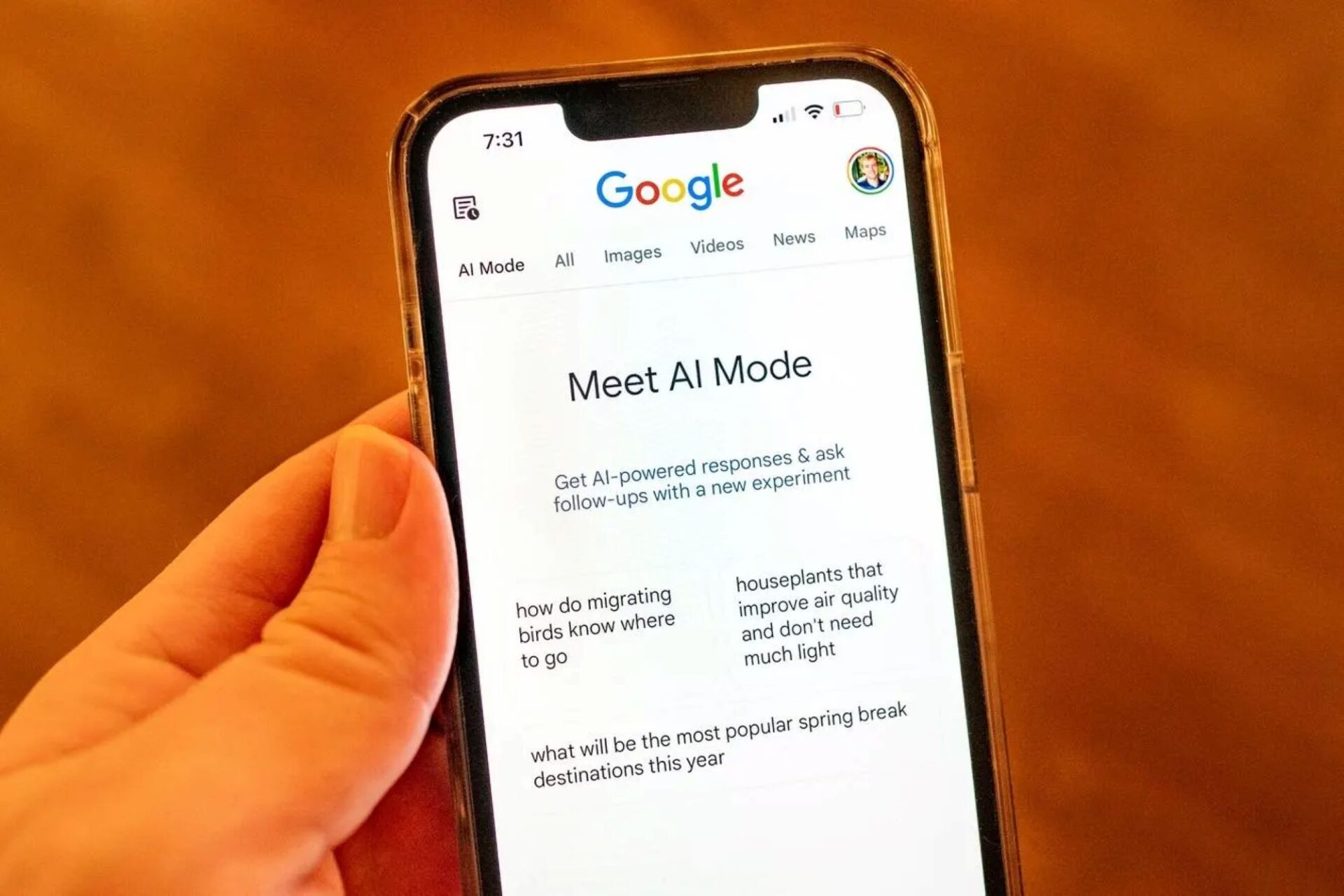Google has initiated a significant evolution in how users interact with its search engine in India, rolling out an experimental “AI Mode” within Search Labs. This marks the first international expansion of this advanced feature, previously available only in the United States, signaling India’s importance as a key market for Google’s artificial intelligence ambitions. The move aims to reshape the search experience, moving beyond traditional keyword-based queries to offer more conversational, nuanced, and comprehensive responses powered by the sophisticated Gemini 2.5 AI model.
- Key Takeaways:
- The Power of Gemini 2.5: Beyond Keywords
- Multimodal Search: Speaking and Seeing Your Questions
- AI Overviews and the Evolution of Search
- An Experimental Approach in India
- Impact on Information Consumption and Content Creation
- Google’s Safety Charter and AI in India
- The Future of Search in India
- Frequently Asked Questions (FAQs)
Key Takeaways:
- Google’s “AI Mode” for Search is now available in India through Search Labs as an experimental feature.
- This is the first international expansion of AI Mode outside the US.
- The feature is powered by a custom version of Google’s Gemini 2.5 AI model.
- It allows for longer, more complex, and multi-part questions, handling nuanced queries.
- AI Mode supports multimodal input, including voice and image searches via Google Lens.
- It generates AI-powered overviews, summaries, and conversational answers, with links to source material.
- Google aims to enhance discovery and help users tackle intricate search tasks like trip planning or product comparisons.
- The rollout is currently in English, with potential for regional language support in the future.
The introduction of AI Mode is a testament to Google’s ongoing commitment to integrating artificial intelligence directly into its core products. For years, Google Search has been the gateway to information for billions globally, and with AI Mode, the company aims to make that gateway more intuitive and intelligent. This isn’t just about providing links; it’s about understanding user intent on a deeper level and delivering synthesized, relevant information in a conversational format.
The Power of Gemini 2.5: Beyond Keywords
At the core of Google’s AI Mode in India is a customized version of Gemini 2.5. This advanced large language model (LLM) brings capabilities that extend far beyond what traditional search engines offer. Previously, a complex query might require a user to perform multiple searches, refining their terms with each attempt. With Gemini 2.5 at the helm, AI Mode can now process significantly longer and more nuanced questions, understanding the underlying context and breaking down the query into subtopics.
Google describes this as a “query fan-out” technique, where a single complex question triggers multiple internal searches across the web. The AI then synthesizes the gathered information into a coherent, comprehensive answer, often presented as an AI-generated overview or summary. These summaries are accompanied by links to the original sources, allowing users to delve deeper into specific aspects of the information if needed.
For instance, a user might ask: “My kids are 4 and 7 and have lots of energy. Suggest creative ways to get them active and moving indoors, especially on hot days, without needing a lot of space or expensive toys.” In traditional search, this might yield generic lists. With AI Mode, the system can process the various constraints and nuances (age, energy levels, indoor setting, hot weather, limited space, budget) to generate tailored suggestions, potentially including specific activities or low-cost toy ideas, all while linking back to relevant guides or product pages.
Multimodal Search: Speaking and Seeing Your Questions
A notable aspect of the AI Mode rollout in India is its emphasis on multimodal capabilities. This means users are not limited to typing their queries. The feature fully supports voice input – a particularly relevant addition for India, where voice search is widely popular. Users can simply tap the microphone icon in the search bar and speak their questions naturally.
Beyond voice, AI Mode also integrates Google Lens, allowing users to incorporate images into their searches. Imagine snapping a photo of an unfamiliar plant and asking, “What is this plant, how do I repot it, and what are its care requirements?” AI Mode, leveraging Lens’s visual recognition, can identify the plant and then provide detailed, step-by-step instructions for its care and repotting, complete with relevant diagrams or videos pulled from the web. This blend of visual and textual input opens new avenues for information retrieval, especially for queries that are difficult to articulate solely through text.
Google has stated that early testers of AI Mode are already submitting queries that are two to three times longer than average, indicating a shift in user behavior towards more detailed and exploratory questioning.
AI Overviews and the Evolution of Search
The AI Mode builds upon the existing “AI Overviews” feature, which Google says is currently used by over 1.5 billion users monthly. AI Overviews provide concise, AI-generated snapshots of key information directly on the search results page, aiming to offer quick answers without requiring users to click through multiple links. In major markets like the US and India, AI Overviews have already contributed to a more than 10% increase in usage for queries where they appear. This suggests that once users experience the benefits of AI-powered summaries, they are likely to engage more frequently with such query types.
AI Mode expands on this by offering more advanced reasoning and the ability to engage in follow-up questions within the same search flow, creating a more conversational and interactive experience. Google’s strategy is clear: to make finding and accessing information on Search even more seamless and capable, particularly for increasingly complex and nuanced questions.
An Experimental Approach in India
The launch in India is part of Google’s “Labs” program, which serves as a testing ground for new features. This experimental approach allows Google to gather feedback from Indian users and rapidly iterate and improve the AI Mode’s performance. It acknowledges that, like any early-stage AI product, the system may not always be perfect. In instances where the AI lacks high confidence in a generated response, the system defaults to displaying traditional web search results, ensuring accuracy and reliability remain paramount.
The current availability of AI Mode in India is limited to English. However, given India’s linguistic diversity and Google’s strong presence in regional languages, there is an expectation that support for more Indian languages will be added over time. This would significantly broaden the accessibility and utility of AI Mode for a larger segment of the Indian internet user base.
Impact on Information Consumption and Content Creation
The widespread adoption of AI Mode could reshape how information is consumed and how content is created and optimized for search. Users may increasingly rely on AI-generated summaries for quick answers, potentially reducing direct clicks to websites for straightforward queries. This implies a need for content creators and publishers to adapt their strategies, focusing on producing comprehensive, authoritative, and well-structured content that AI models can readily interpret and synthesize. Emphasizing clarity, accuracy, and depth will be crucial for content to be considered a reliable source for AI-generated overviews.
For businesses, particularly small and medium enterprises, ensuring their online presence is optimized for conversational and entity-based search will be vital. Detailed product descriptions, clear service explanations, and robust FAQ sections can help AI Mode surface relevant information about their offerings.
Google’s Safety Charter and AI in India
As AI technology becomes more pervasive, Google has also underlined its commitment to responsible AI development and user safety, particularly in India. The company recently unveiled its “Safety Charter for India’s AI-led Transformation.” This charter outlines a collaborative plan focusing on user safety, responsible AI development, and the protection of digital infrastructure. It addresses concerns like online fraud, deepfakes, and cybersecurity threats, leveraging AI-powered measures to detect and curb such malicious activities.
This commitment to safety and privacy is crucial as AI Mode gathers user queries and interactions to refine its models. Google states that data used for training and improvement is disconnected from user accounts, and automated tools are employed to remove identifying or sensitive personal information, underscoring its efforts to protect user privacy.
The Future of Search in India
India, with over 870 million internet users and high mobile penetration, serves as a vital market and a unique testing ground for Google’s AI advancements. The habits and preferences of Indian users, particularly their affinity for voice and visual search, will significantly influence the future direction of AI Mode and other AI-powered search features globally.
The launch of AI Mode in India is more than just a new feature; it represents a fundamental shift in the paradigm of online information retrieval. It signals a future where search engines function not just as indexing tools but as intelligent assistants capable of understanding complex human queries, synthesizing vast amounts of information, and providing direct, conversational answers. As this technology evolves, it holds the promise of making information more accessible, relevant, and intuitive for everyone.
Frequently Asked Questions (FAQs)
Q1: What is Google’s AI Mode for Search?
A1: Google’s AI Mode for Search is an experimental feature that uses advanced artificial intelligence, powered by Gemini 2.5, to provide more conversational, comprehensive, and nuanced answers to complex search queries. It goes beyond traditional keyword matching to understand intent and synthesize information from across the web.
Q2: How does AI Mode differ from regular Google Search?
A2: Unlike regular Google Search, which primarily provides a list of links, AI Mode offers AI-generated overviews, summaries, and direct answers to your questions in a conversational style. It can handle longer, multi-part questions and supports multimodal input like voice and images.
Q3: Is AI Mode available to all Google users in India?
A3: No, AI Mode is currently available in India as an experimental feature within Google’s “Search Labs.” Users need to opt in through Search Labs to access and try out the feature.
Q4: What AI model powers Google’s AI Mode in India?
A4: Google’s AI Mode in India is powered by a customized version of the Gemini 2.5 large language model.
Q5: Can I use AI Mode to search in Indian languages?
A5: Currently, AI Mode in India is available only in English. However, given Google’s focus on regional languages in India, it is likely that support for other Indian languages will be introduced in the future.
Q6: How accurate are the answers provided by AI Mode?
A6: While AI Mode aims to provide accurate information, Google states that as an early-stage AI product, it may not always be perfect. In cases where the system lacks high confidence in a response, it will display traditional web search results alongside or instead of AI-generated content. Users are encouraged to cross-reference important information.
Q7: How can I access AI Mode in Google Search?
A7: To access AI Mode, you need to sign up for Google’s Search Labs and enable the AI Mode experiment. You can usually find a prompt or banner within the Google Search interface on the web or through the Google app on Android and iOS devices.
Q8: What kind of queries is AI Mode best suited for?
A8: AI Mode is designed for complex, multi-layered, and exploratory questions that would typically require multiple searches or in-depth research. Examples include comparing products, planning trips, understanding complicated “how-to” guides, or seeking detailed explanations on a topic.
Q9: Does AI Mode affect website traffic for publishers?
A9: As AI Mode provides direct answers and summaries, it may reduce the need for users to click through to external websites for immediate information. This could impact website traffic for some publishers, necessitating an adaptation of content strategies to focus on depth, authority, and comprehensive coverage.


















